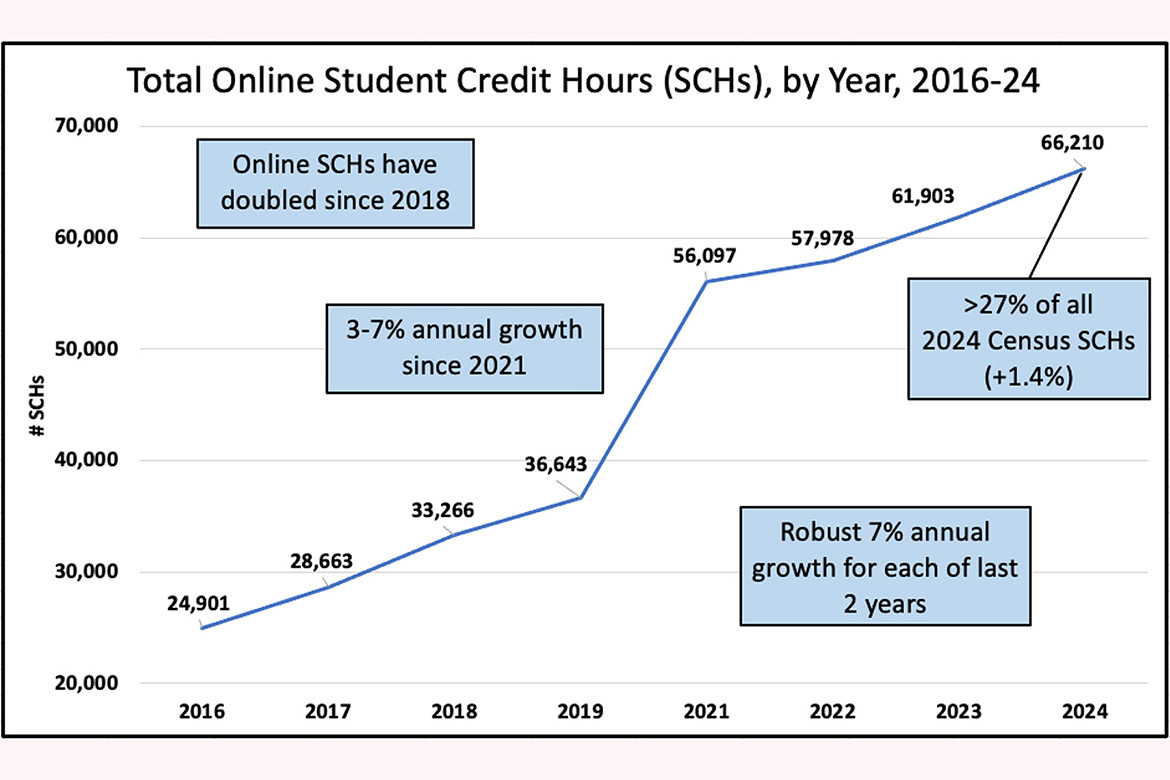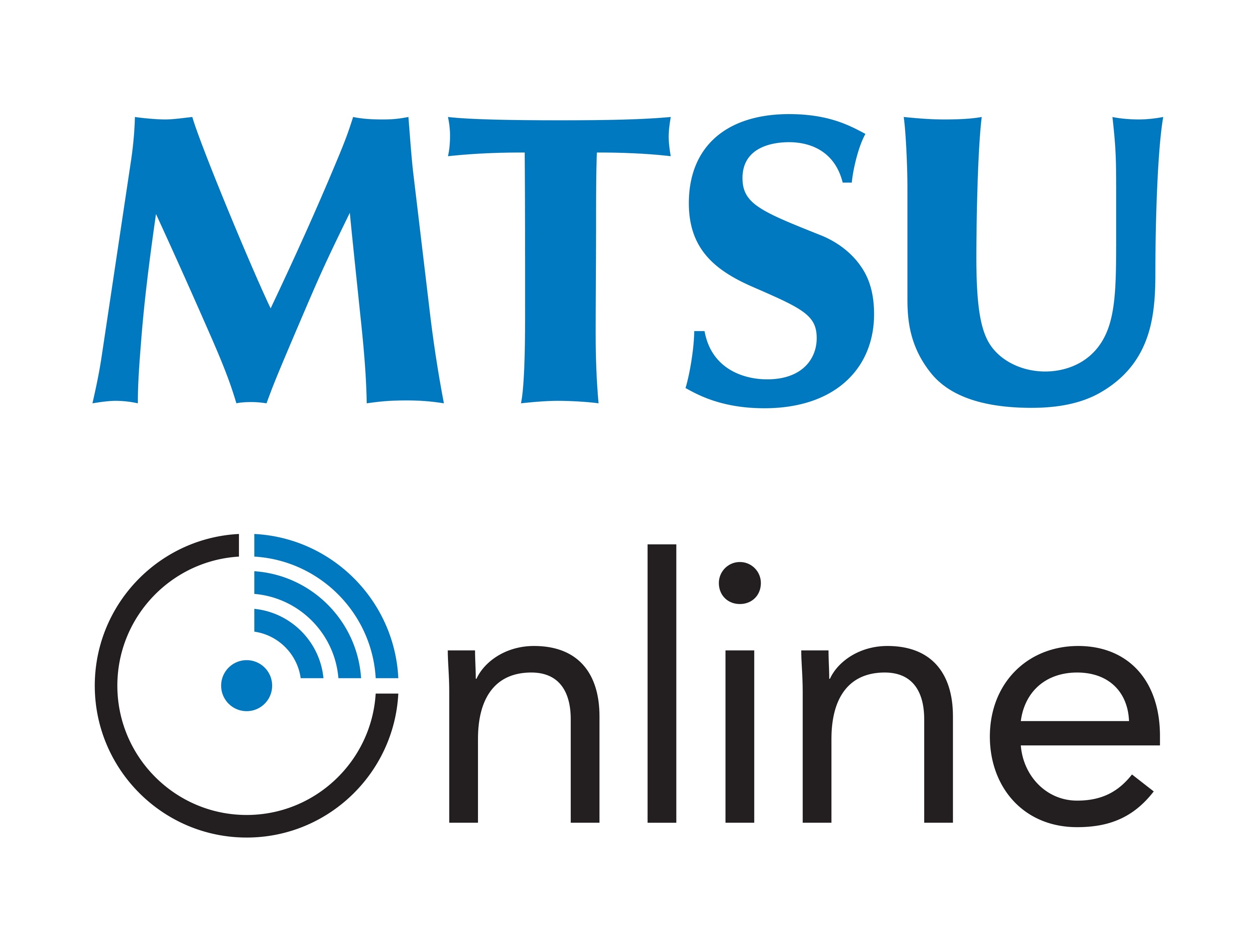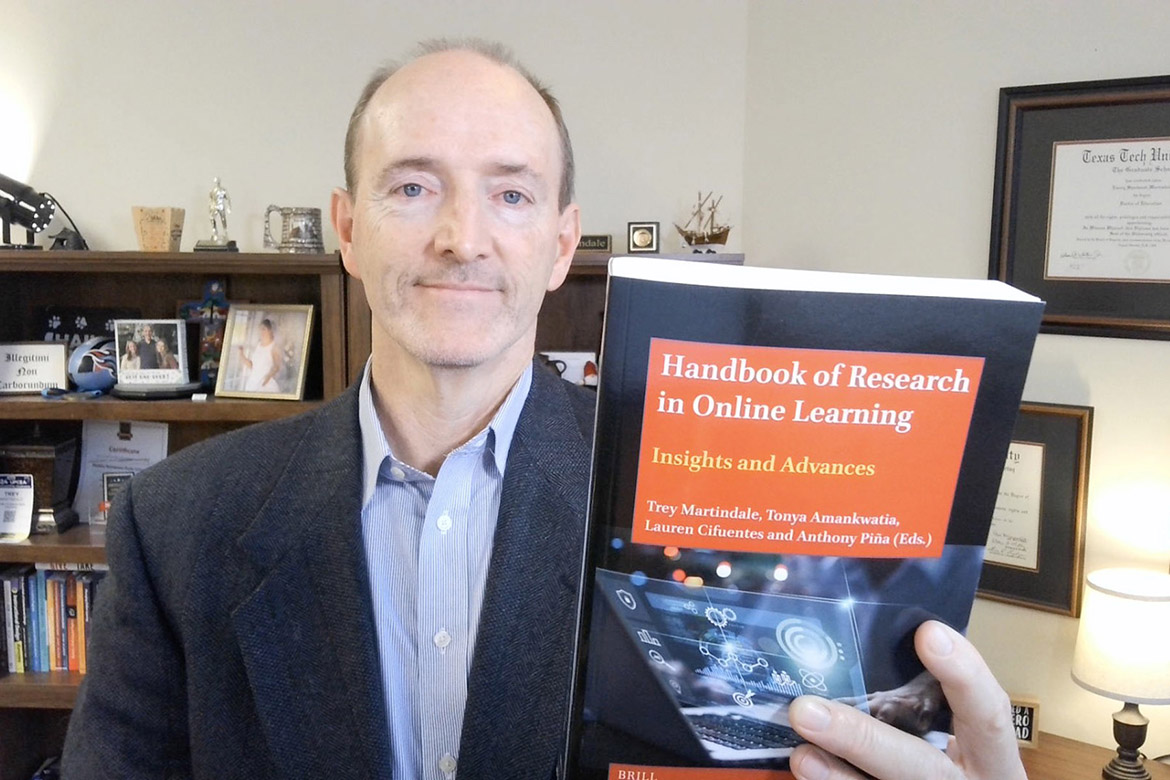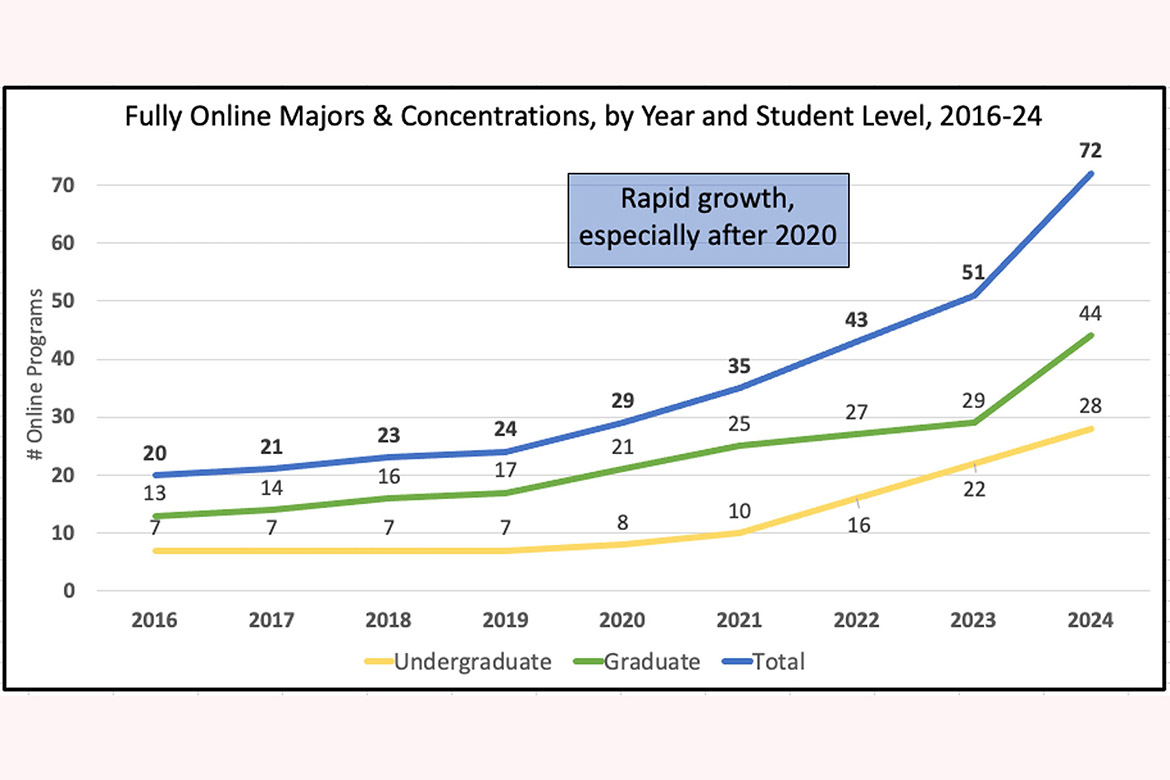MURFREESBORO, Tenn. — Middle Tennessee State University’s online program sees record growth this fall with 54% of students taking at least one MTSU Online course.
The number of fully online programs offered more than tripled since 2016 — starting at 20 in 2016 and 72 in 2024, with 43 of those programs launched since 2020.
The number of online students also began steadily increasing in 2020, due in part to students being introduced to online learning during the COVID-19 outbreak.

The pandemic “exposed many faculty to teaching online, so some people that may have been resistant to or inexperienced with teaching online gained some immediate experience,” explained Trey Martindale, associate vice provost for online learning.
However, Martindale noted that emergency remote teaching differs from intentional and carefully designed online courses, and that COVID was “more a catalyst than a reason” for the growth of MTSU Online since university President Sidney A. McPhee recognized and prioritized online learning before the pandemic began.

Now, in fall 2024, MTSU Online supports 28 full-time, temporary instructors in 18 academic departments who focus on providing high-quality online teaching.
“I am so pleased to support MTSU Online and the dramatic expansion of online education at MTSU,” said Brian Hinote, vice provost for faculty and strategic initiatives. “This is a primary strategic initiative for our university, and one in which our faculty are leading the way with innovative approaches to instruction and supporting our students’ success.”
Reasons for growth
MTSU Online continues to grow as the Nashville metropolitan area grows. This fall alone, 2,831 students were fully online, which comprises almost 14% of the total student headcount.
Martindale explained, “The vast majority of adult and online students, when they enroll in an online program, they are enrolling in an institution within 100 miles of their home.
“MTSU has benefited from the population growth in our region, and MTSU has a positive reputation for teaching and for supporting students, and so we’ve been able to extend that high-quality endeavor into the online domain.”
The University College, which generally focuses on nontraditional students, has been a pioneer in promoting fully online degrees, along with the Jones College of Business.
Most MTSU online courses are asynchronous (students do not have to meet at the same time), providing greater flexibility for working adults to incorporate pursuing a degree into their busy daily lives.
Nontraditional and graduate students may be the majority of online students, but the 18- to 24 year-olds are also participating online.
“Interestingly, we have about two dozen full-time, undergraduate MTSU students living in the residence halls, taking fully online courses,” he said. “That’s unusual now but may become more common.”

This fall, 545 unique online courses were introduced, leading to 27% of all MTSU student credit hours this semester coming from online courses.
Offering more online courses provides a myriad of benefits to students, including a flexible schedule, the ability to work part-time or full-time and the ease of balancing school with raising a family or caregiving, Martindale elaborated.
The future of online learning
While 30 online programs are in active development, Martindale aims to go beyond increased course offerings.
“Now that we have this critical mass of fully online students, we want to make sure that they are as connected and as involved in the life of MTSU as they can possibly be,” he said.
“We’re working on initiatives such as a virtual student union and virtual clubs — ways for students to connect and engage and feel like they belong at MTSU because they do belong at MTSU, and it’s a significant population,” Martindale continued.

Martindale explained that 2025 will be the year of student services for online students, which “means us making efforts to make sure students have access to all the things that students have on campus, like concerts, plays, club activities and special events.”
“As MTSU Online continues to expand, we remain focused on providing high-quality educational and instructional experiences for both students and faculty,” Hinote said. “Student success is an important part of the MTSU mission, and our ongoing work in online education, from in-demand programs to top-notch student services, reflects this priority.”
Recently, MTSU Online received awards for its graduate programs from Online Master’s Degrees and Online Master’s Colleges as well as being named one of the top online colleges by Newsweek and for offering one of the best online nursing and allied health programs by EduMed.
“We have the programs and courses, and our online departments and faculty are winning awards. Now, let’s win awards for excellent student support,” Martindale said.
Martindale’s recent online learning publication
“Part of my role as the senior person for online learning is to make sure I know what’s happening in the field, what’s happening nationally and internationally and staying on top of research and practice in online learning,” Martindale said.

He was the lead editor and co-writer of the recently published book (2024), “Handbook of Research in Online Learning,” which “delves into the nuanced landscape of online learning,” according to Brill Publishers.
The handbook has been very well received in terms of positive press. Martindale and co-authors are considering two other books.
“One will be about how to administer online programs — in other words, how to essentially do my job,” he explained. “And then potentially a book about how to advise senior leadership in higher education about online, so this would be a book for presidents and provosts about what they need to know about online learning.”
Martindale has also been a professor for the last 20 years in the instructional design and technology field with expertise in online learning environments.
“Before I came to MTSU, I was a professor teaching online courses,” he said. “Often I was teaching online courses about how to develop online courses and programs.”

Collaborative effort
Martindale stressed his gratitude for the support of the deans, department chairs and faculty of each college. He also noted the outstanding support from Hinote.
“MTSU Online is not a separate institution from MTSU, and all our programs are the programs of MTSU’s departments, and all our faculty that are teaching are not separate online faculty,” Martindale said. “They are the regular faculty of MTSU. That’s a strategic decision on the part of our leadership — our president and provost.
“Our goal is not for the online programs to be as good as the face-to-face programs — our goal is for them to be better,” he noted. “MTSU Online is a facilitator, so we really rely on their cooperation, and MTSU has been a great environment for collaboration.”
Martindale explained the importance of teamwork among the MTSU Online staff saying, “Any positive news like this about major progress for online learning at MTSU is directly attributable to our dedicated staff.
“This small team makes this big online engine run,” he said. “Our team is David Babb, RaeAnne Pardue, Carol Hayes, Tonya Dowd, Hangmin Zhang, Tim O’Neal, Tara Perrin and Karen Hein.”
Martindale continued, “These people work hard and are customer-focused and innovative. They do outstanding work in their service to students and faculty.”

He credits the four MTSU Online instructional designers for coaching faculty who teach fully online programs.
“We’ve had this huge run up of the number of online programs, and we’re very focused on quality, so we want to make sure that we have high quality programs that we’re offering,” he said. “We have four instructional designers, and these IDs serve in the roles of coaches and helpers for the MTSU faculty.”
MTSU Online offers key student services for online students such as counseling services, 24/7 live subject tutoring, library services and writing center tutors as well as many faculty services including faculty development and training workshops and peer mentoring.
To learn more about MTSU Online and its programs, visit https://www.mtsu.edu/online/.
— Maddy Williams (Maddy.Williams@mtsu.edu)


COMMENTS ARE OFF THIS POST